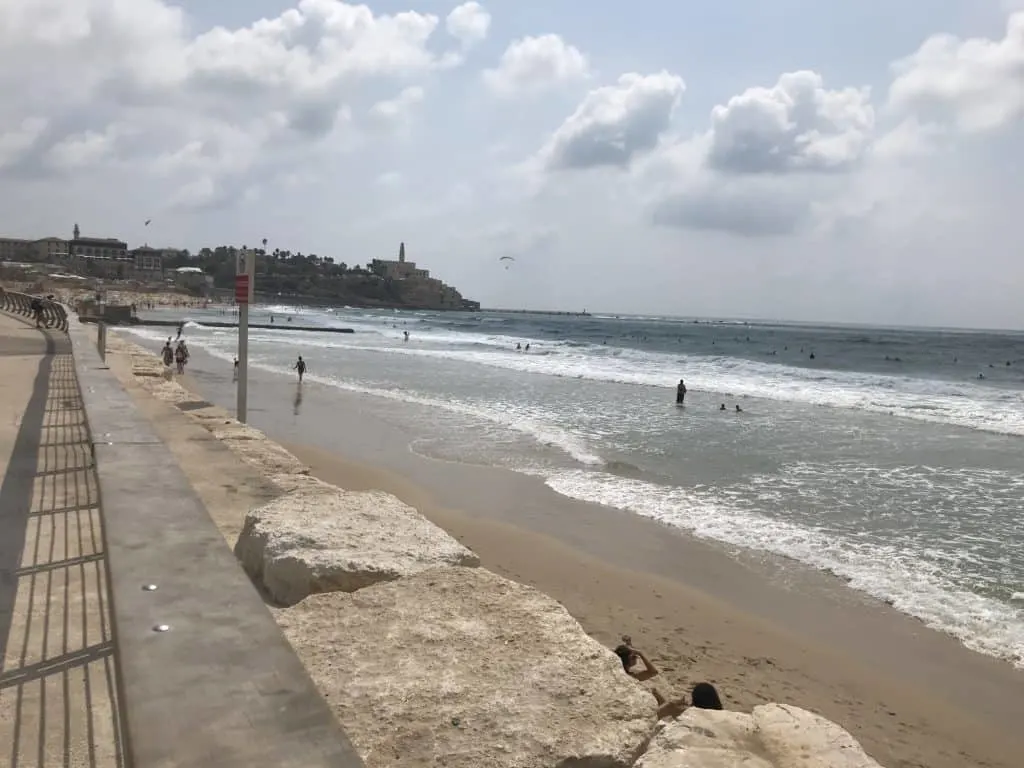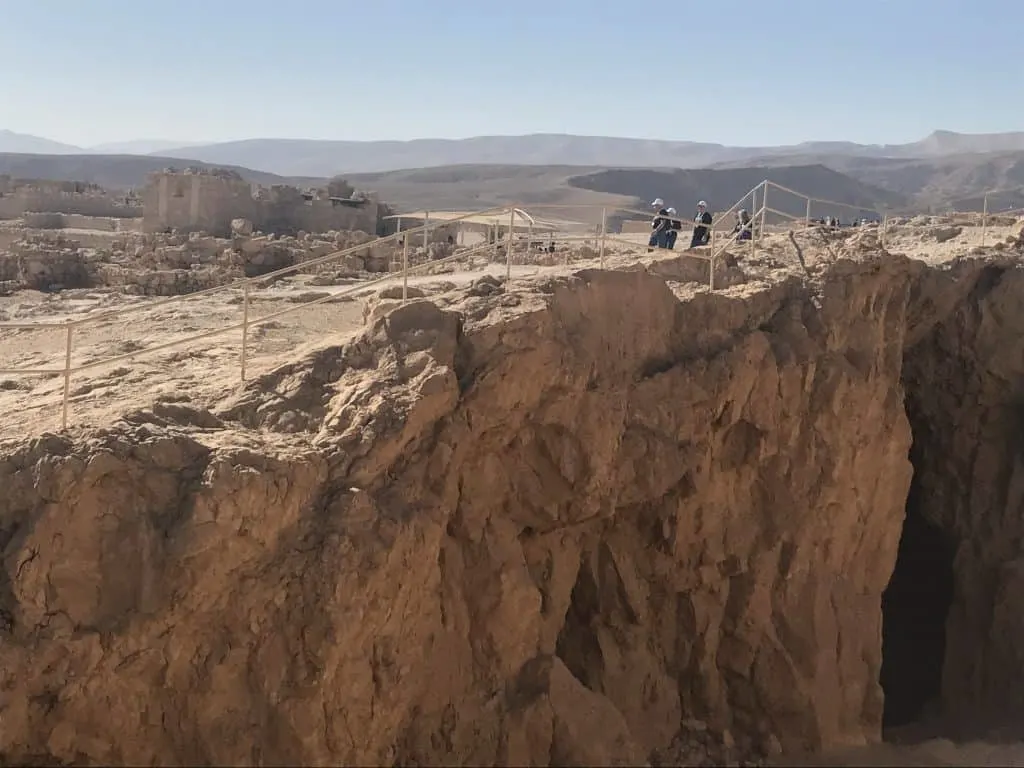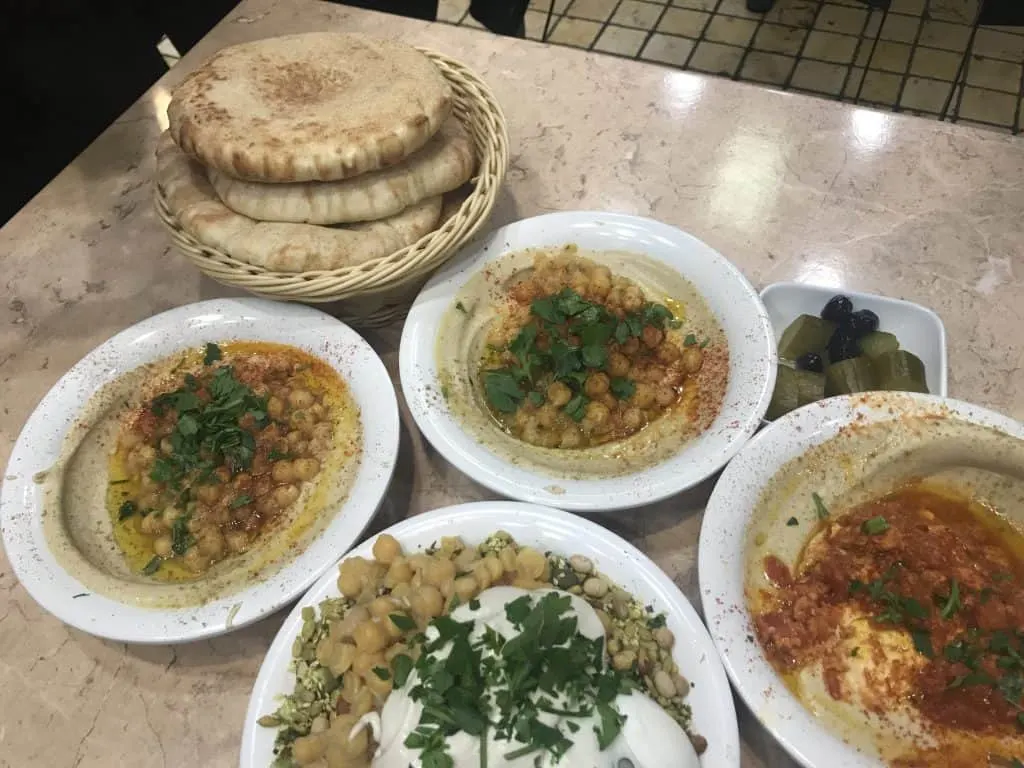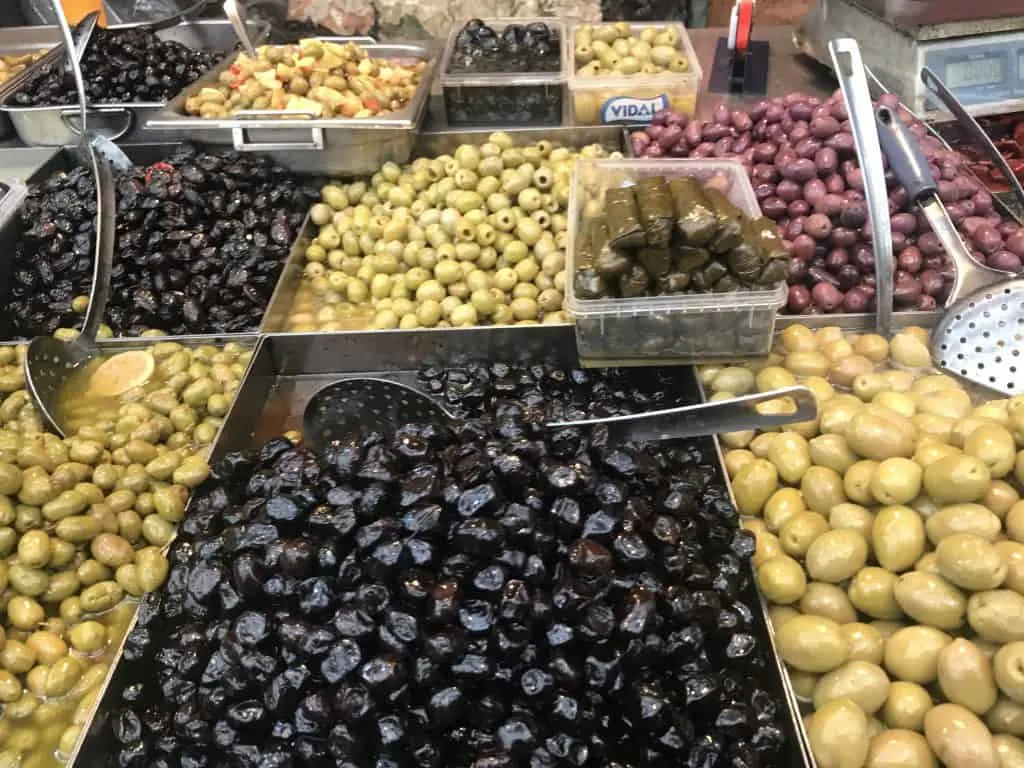Are you planning your first family trip to Israel? Then you’ll want some Israel travel tips from someone who knows the country inside out.
Israel is the size of that state of New Jersey. You can drive from the top to the bottom of the entire country in five to six hours. While it’s a small country, there is a lot to see and do. Aside from its vast amount of history, there are archaeological ruins, art colonies, museums, religious sites, shopping, mountains, beaches, and so much more. You’ll want to do it all. But there are other considerations to handle first. When to go? How much will the trip cost? What will the kids eat? Do Israelis speak English?
This is just a small sampling of the questions you may have, but your friends at Trekaroo are here to help. Here’s what you need to know when planning a family trip to Israel.
When to Visit

A beach in Tel Aviv, en route to Jaffa. Photo by Holly Rosen Fink.
Flight and hotel prices drop in the winter (October to March) when it’s rather cool in most areas. Israel remains hot in other areas, especially in the south.If the Dead Sea, the resort town of Eilat or the Masada interest you, then spring (April/May) is a great time to visit. It’s also particularly beautiful in the north when flowers bloom in the Galilee and Golan.
While it’s relatively warm all over Israel, summer (June-August) can be scorching hot particularly in the south where temps soar past 100 degrees Fahrenheit. Air-conditioned venues and swimming pools are a big draw. Beach days and dips in the Mediterranean will also be rather attractive.
Airfares are higher during Jewish holidays, such as Passover in April and Ramadan in May and the High Holidays in September/October. Tel Aviv is warm all year long; Jerusalem’s weather fluctuates more and gets cold in the wintertime.
Costs

The Old City of Jerusalem outside the Church of the Sepulchre. Photo by Holly Rosen Fink
A family trip to Israel can be on the pricey side. It is a Middle Eastern country and it is far, far away. Family trips require meals, beds, and, daily activities for everyone. However, you can take certain steps to save money if you plan ahead of time. For example, try to avoid changing money at the airport. Know that there are ATMs all over Israel, which are more cost-effective and very accessible.
Try to book your flights as far out as you possibly can and search everywhere for low-budget fares. There are discount online sites such as JustFly.com, Vayama.com or Kayak.com. Look for fares with connections and be flexible. Often an overnight stay in Europe helps bring down the price. It can also be a special opportunity for the family to explore additional places together
To avoid high hotel expenses, which can run between $200-$600 per night, it pays to look at alternatives. All over Israel you’ll find hostels that include air conditioning. When arranging accommodations for families though, Airbnb is the way to go. You can book reasonably priced apartments in virtually every city, most of which are equipped with a full-service kitchen and other amenities.

Find deals on family-friendly lodging in Israel
Tel Aviv | Jerusalem | Eilat | Galilee | Golan
Trekaroo is an affiliate of Booking.com. Thanks for booking through us to help keep Trekaroo free!
While you’ll want your kids to learn all about Israeli history, tour guides are very expensive. They run around $250 or more per day. Do research prior to arriving in Israel and look for discount group tours, such as Artzeinu. You can also get great rates on bus trips to Petra in Jordan just across Israel’s border. As far as attractions go, look for family tickets, student and children’s prices on admission and take self-guided tours using apps and travel guides in interesting neighborhoods such as Florentin in Tel Aviv or the Old City in Jerusalem or through the old part of Sfat.
Transportation Tips

A view of Masada. Photo by Holly Rosen Fink.
Buses and trains go to most places in Israel, but even with the high costs of gasoline, renting a car is the way to go. Rental prices start at $35 per day and Israeli roads are modern with good signage. Plus, distances between destinations aren’t long. At Ben-Gurion Airport, you can rent a car from any of the following companies: Dollar, Thrifty, SixT, Avis, Hertz, Budget or Eldan. Be sure to check all charges on your bill carefully, Israel has an abundance of taxes that Americans are not used to.
Parking can be more expensive in major cities such as Tel Aviv and Jerusalem. Public transportation in the major cities is dependable, so plan on returning your car during these visits. If you can’t return the car, check with your hotel or Airbnb on parking costs beforehand. Everyone in Israel takes buses. They’re safe and often have free Wi-Fi.
If you do bring your car into a city, be sure to download the app Pango. Not only does it help you find parking spaces more easily, but you can pay parking fees which will help to avoid fines. If you take cabs, ask your driver to turn on the meter to avoid getting ripped off.
Culinary Tips

A typical Israel meal with hummus and pita. Photo by Holly Rosen Fink.
Eating out in Israel is very different for your young American’s palette. Talk to your children about trying Israeli street food, which tends to be cheaper. Selections such as falafel, shawarma, hummus, and tahiniare not only delicious, they’re somewhat healthy and more affordable than a sit-down meal. There are also falafel shops all over Israel where you can sit down and share big plates of hummus, salad, and homemade pita.
Breakfast is a very special meal, whether you have it in a cafe or hotel. You’ll find salads, pastries, cereals, eggs, meat, fruit, juice, coffee, tea, and other Israeli delicacies. Many foods in Israel come straight from the farm so the produce is very fresh. Bread is made on kibbutzim in factories, as are dairy products so the cheese, cottage cheese and ice-cream taste completely different to what your children are used to.
Be sure to spend time in markets such as Mahane Yehuda Market in Jerusalem or Carmel Market in Tel Aviv — and try local dishes such as shakshuka, kibbeh, sabich, and jachnun. Also make sure to visit Arab villages such as Abu Ghosh. Don’t miss cities such as Haifa and Acre ,where Arabs and Jews live peacefully beside each other. They have incredible restaurants! If your picky child can’t be converted, entice them with babka, rugelach, and other delicious desserts at Marzipan Bakery in Jerusalem.
Your food options will be more limited from Friday night to Saturday sunset, during the weekly observance of Shabbat when many restaurants close, so be sure you have your culinary bases covered during that time.
Cultural Differences

Mahane Yehuda Market in Jerusalem. Photo by Holly Rosen Fink.
Israelis do have cultural differences that are worth noting. They are direct and get to the point rather quickly, so try to do the same. They may have less patience than Americans, but Israelis live for the moment and are incredibly spontaneous and hospitable. Bumping into someone you know in the street will likely result in a dinner invitation for that very night.
Be prepared to negotiate in markets. The shopkeepers expect it and have fun bargaining with their customers. Israelis are also incredibly proud of their country, so be prepared to find out that everything there is the best. Of course, religion is an important aspect of Israeli culture, wear modest clothing in certain areas of Israel.
Fortunately, Israelis speak English, for the most part, as they all learn it in school. Don’t worry about getting stuck in a difficult situation, waiters, cab drivers, and hoteliers speak English.
Lastly, Israel is not the easiest place in which to live politically, but many people there – of all religions -would not trade their lives for a million dollars. You will hopefully know why after your visit.
Lead photo by: Bigstock
- 25 Cool Things to do in London with Teens - October 16, 2024
- Over 30 FUN Things to Do in NYC with Teens - March 31, 2025
- Over 20 Fun Things to do in Edinburgh with Kids & Beyond - March 31, 2025


